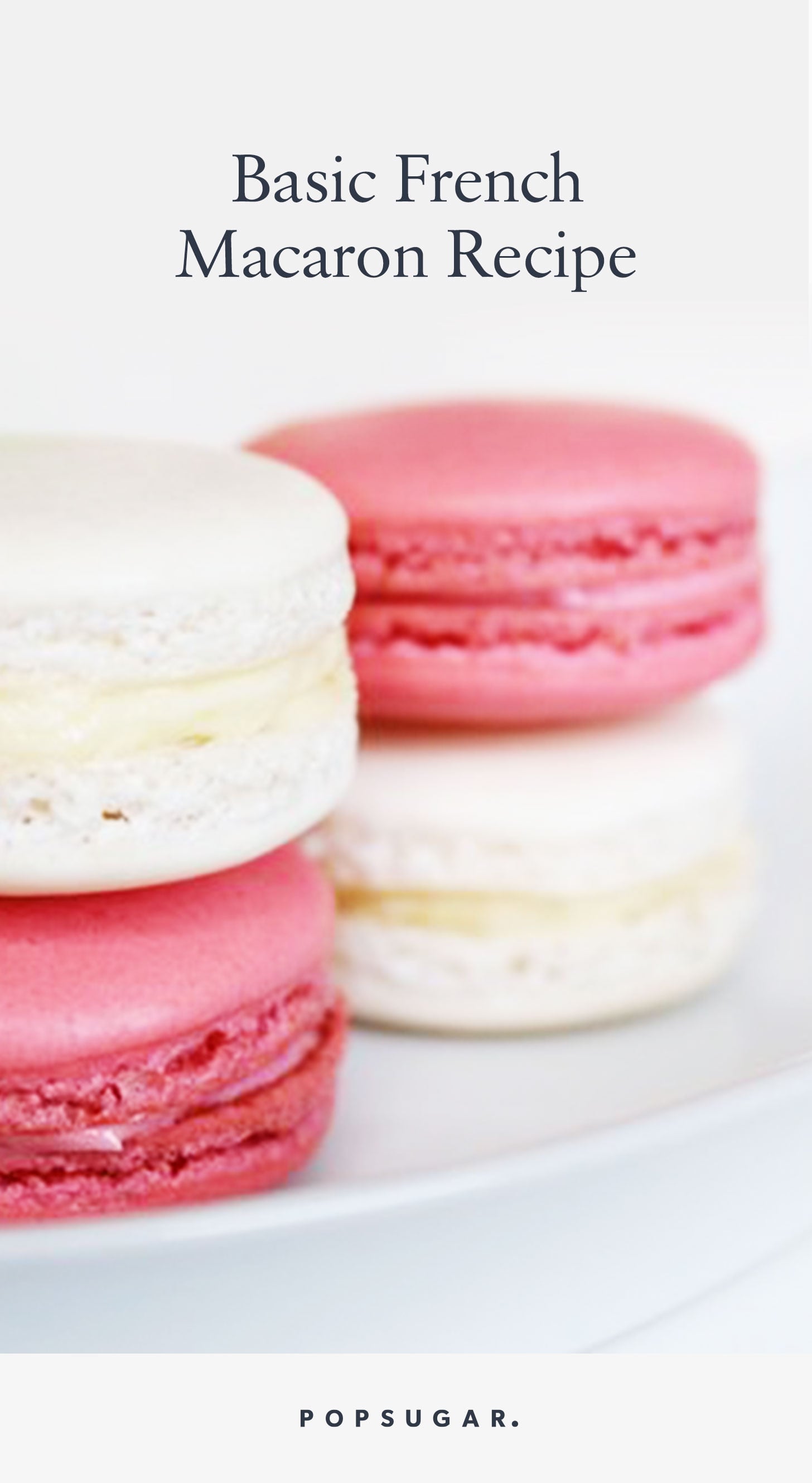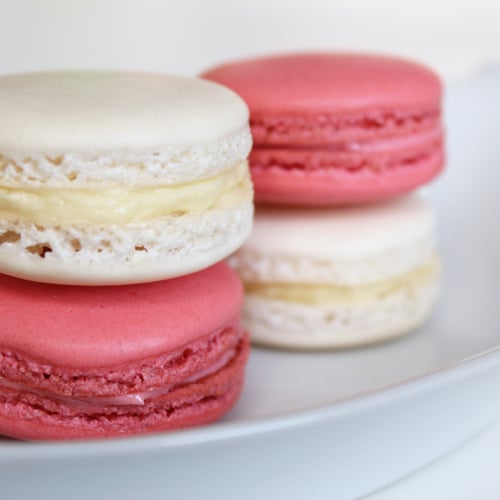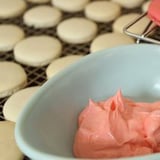Perhaps it’s the rainbow of cheerful hues, the adorable two-bite size, or — most likely — the perfect crisp-chewy texture, but I just can’t get enough of French macarons. Even when I’m stuffed to the gills, I can always make room for these tiny, delicate pastries.
True, macarons can be temperamental (meringue is the capricious culprit), but they do respond wonderfully to patience, encouragement, and a loving touch. So before you dismiss the idea of making these little lovelies at home, we’ve found a basic recipe that breaks down the uncooperative veneer of the elusive macaron.

Although part of the same happy pastry family, the French macaron should not be confused with the coconut macaroon. They are similar in concept, but differ greatly in execution: while both entail adding dry ingredients to a delicate egg white meringue, the one “o” macaron uses finely ground almonds as its base and requires much more gentle handling.
Much like a first date, there’s a good chance that your first batch could end awkwardly. As in love, you simply pick yourself up and try again. Once you begin to understand the macaron’s nature — its singular texture, its response to your oven, its personality in your climate — suddenly it’s like the realization that you both enjoy the same rom-com movies and takeout Chinese; everything just works.

Ready for the challenge?
Basic French Macarons
Adapted from I Love Macarons by Hisako Ogita
Notes
The basic meringue-style French macaron is merely the springboard for your wildest color and flavor combinations. Try adding a teaspoon of Dutch-process cocoa and red gel food coloring for a red velvet macaron, or a 1/4 teaspoon rose extract and pink gel food coloring for rose. Always add the dry flavorings to the almond meal/powdered sugar mixture and the extracts/gel color to the meringue.
Ingredients
Directions
Information
Basic Macaron Buttercream Filling
Adapted from I Love Macarons by Hisako Ogita
Ingredients
Directions
Information

Source: Read Full Article




